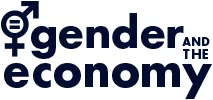Navigating a career can feel complicated and confusing. For trans and nonbinary people, there can be additional barriers in place which make the process even more complex. In this event co-hosted by Career Exploration & Education, Sexual & Gender Diversity Office (SGDO), the Institute for Gender and the Economy (GATE), and U of T Alumni Relations, Jade Pichette, Christine Hsu, and Beena Mistry in conversation with Trick Horan addressed questions, challenges and complications relating to trans and nonbinary inclusion in the workplace. They shared practical suggestions, strategies and resources to support trans and nonbinary students and alumni in their career development, and equip employers and HR professionals with actionable steps towards building a more trans-inclusive workplace.
This discussion also brought together two recently developed resources for trans and nonbinary inclusion:
- Your Journey: A Career Guide for Trans and Nonbinary Students
- Transitioning Employers: A survey of policies and practices for trans inclusive workplaces
What are some common barriers trans and nonbinary people face in the workplace, and what does a more inclusive workplace look like?
- While pronouns are important, they are not the whole discussion. Trans and nonbinary inclusive workplace policies need to be in place, such as inclusive benefits policies, ensuring dress codes are not gendered, and data analysis on representation and the experiences of trans and nonbinary employees.
- Leadership can be a significant barrier, and leaders should model inclusivity in their actions. Trans and nonbinary people often face pressure to get leadership buy-in for support, rather than organizations and leaders taking responsibility. It should not be up to employees, including Employee Resource Groups, to take on this inclusivity work.
- There are also problems of tokenization. Especially for freelancing or contract work, people may seek to hire people who are trans or nonbinary because they know it is important to do so, but will offer them little to no compensation.
- Trans and nonbinary people, as all people, are multifaceted. Organizations should focus on who they are and what they do, not on what their gender identity is, and build them up based on their potential.
What are some ways that trans and nonbinary people can advocate for themselves at work?
It’s important to have networks of support to ensure you feel safe in your workplace. Having people you trust around you can help if you need to advocate for yourself and your needs. Further, it’s always good to know your legislative rights, and know that it is well within your rights to correct people when needed and defend your decisions.




